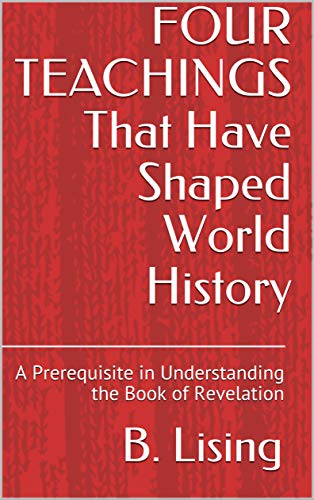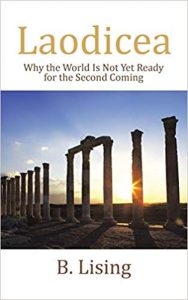
THE BOOK OF REVELATION IS NOT MEANT TO CONFUSE BUT TO REVEAL.
A Simple Way to Understand this Controversial Book
100% Privacy Guaranteed

A Simple Way to Understand this Controversial Book
100% Privacy Guaranteed
This story is normally relayed by highlighting the life of Job, who was described as righteous, very wealthy, and having a wonderful family. But following the events that took place in the presence of the Lord involving angels and Satan, there came, suddenly, a series of catastrophic events that put Job to the test. At the end of these tough times, Job stood victorious and remained faithful to his God. Then his latter days were described as more blessed than his former days had been.
This is not a New Covenant representation but rather an Old Covenant or human-traditions representation.
The real story unfolds when three close friends visited Job to comfort him during his great suffering. One important question rambled in Job’s mind, and he needed to search quickly to find a satisfying answer.
Job could not accept the fact that he was actually suffering in spite of his great effort to remain blameless and upright in the eyes of his God by upholding the covenant. Let us read some of the passages from the book of Job to take hold of the real story:
After seven days and seven nights of saying nothing, Job broke the silence, but his words made his friends wonder. They all alternately argued with him (instead of comforting him), which resulted in heated discussion.
—Job—
“Let the day of my birth be erased, and the night I was conceived. Let that day be turned to darkness. Let it be lost even to God on high, and let no light shine on it … Why didn’t I die as I came from the womb?”
—Eliphaz—
“In the past you have encouraged many people; you have strengthened those who were weak … But now when trouble strikes, you lose heart. You are terrified when it touches you … Stop and think! Do the innocent die? When have the upright been destroyed? My experience shows that those who plant trouble and cultivate evil will harvest the same.”
—Job—
“Stop assuming my guilt, for I have done no wrong. Do you think I am lying? Don’t I know the difference between right and wrong? … If I have sinned, what have I done to you, O watcher of all humanity? Why make me your target? Am I a burden to you?”
—Bildad—
“How long will you go on like this? You sound like a blustering wind. Does God twist justice? Does the Almighty twist what is right? Your children must have sinned against him, so their punishment was well deserved. But if you pray to God and seek the favor of the Almighty, and if you are pure and live with integrity, he will surely rise up and restore your happy home.”
—Job—
“But how can a person be declared innocent in God’s sight? If someone wanted to take God to court, would it be possible to answer him even once in a thousand times? … Even if I were right, I would have no defense. I could only plead for mercy. And even if I summoned him and he responded, I’m not sure he would listen to me.”
—Zophar—
“Shouldn’t someone answer this torrent of words? … You claim, ‘My beliefs are pure,’ and ‘I am clean in the sight of God.’ If only God would speak; if only he would tell you what he thinks! … Get rid of your sins, and leave all iniquity behind you. Then your face will brighten with innocence. You will be strong and free of fear.”
—Job—
“You are no better than I am. As for me, I would speak directly to the Almighty. I want to argue my case with God himself. As for you, you smear me with lies. As physicians, you are worthless quacks. If only you could be silent! That’s the wisest thing you could do … Be silent now and leave me alone. Let me speak, and I will face the consequences … O God, tell me, what have I done wrong? Show me my rebellion and my sin. Why do you turn away from me? Why do you treat me as your enemy?”
—Eliphaz—
“What do you know that we don’t? What do you understand that we do not? … If you will listen, I will show you. I will answer you from my own experience … The wicked writhe in pain throughout their lives. Years of trouble are stored up for the ruthless?”
—Job—
“I have heard all this before. What miserable comforters you are! … God hates me and angrily tears me apart. He snaps his teeth at me and pierces me with his eyes. People jeer and laugh at me. They slap my cheek in contempt. A mob gathers against me.”
—Bildad—
“How long before you stop talking? Speak sense if you want us to answer! Do you think we are mere animals? Do you think we are stupid? … They will say, ‘This was the home of a wicked person, the place of one who rejected God.’”
—Job—
“How long will you torture me? How long will you try to crush me with your words? You have already insulted me ten times … You think you’re better than I am, using my humiliation as evidence of my sin. But it is God who has wronged me, capturing me in his net … Have mercy on me, my friends, have mercy, for the hand of God has struck me. Must you also persecute me, like God does? Haven’t you chewed me up enough?”
—Zophar—
“I must reply because I am greatly disturbed. I’ve had to endure your insults, but now my spirit prompts me to reply. Don’t you realize that from the beginning of time, ever since people were first placed on the earth, the triumph of the wicked has been short lived and the joy of the godless has been only temporary?”
—Job—
“Listen closely to what I am saying. That’s one consolation you can give me. Bear with me, and let me speak. After I have spoken, you may resume mocking me … Why do the wicked prosper, growing old and powerful? Their homes are safe from every fear, and God does not punish them … They spend their days in prosperity, then go down to the grave in peace. And yet they say to God, ‘Go away. We want no part of you and your ways’ … So how can you console me with your nonsense? Nothing is left of your answers but falsehood!”
Job’s friends believed that the righteous would surely be blessed, while the wicked would definitely be cursed—that was the covenant they knew God had established for mankind. They believed that God would never break His covenant, so it follows that they considered Job somehow had broken the covenant, which was the cause of his trouble and suffering.
At the end of the story, God spoke with Job and made him comprehend why He had allowed him to undergo all those aches and great sufferings. He showed Job the answer to the question: “Why would the covenant-keeping God break His own covenant?”
God introduced to Job the one true covenant (the New and Everlasting covenant, which was based on God’s grace and mercy) and showed that the former covenant (the Old Covenant, which was based on man’s effort) was already obsolete and was not really made for the righteous.
The book of Job concluded as follows:
Indeed, the glory of the New Covenant surpasses the glory of the Old Covenant.
Download PDF: WHY-WOULD-THE-COVENANT-KEEPING-GOD-BREAK-HIS-OWN-COVENANT.pdf
We can refer to the following books if we want to know more about old covenant and new covenant representations.
